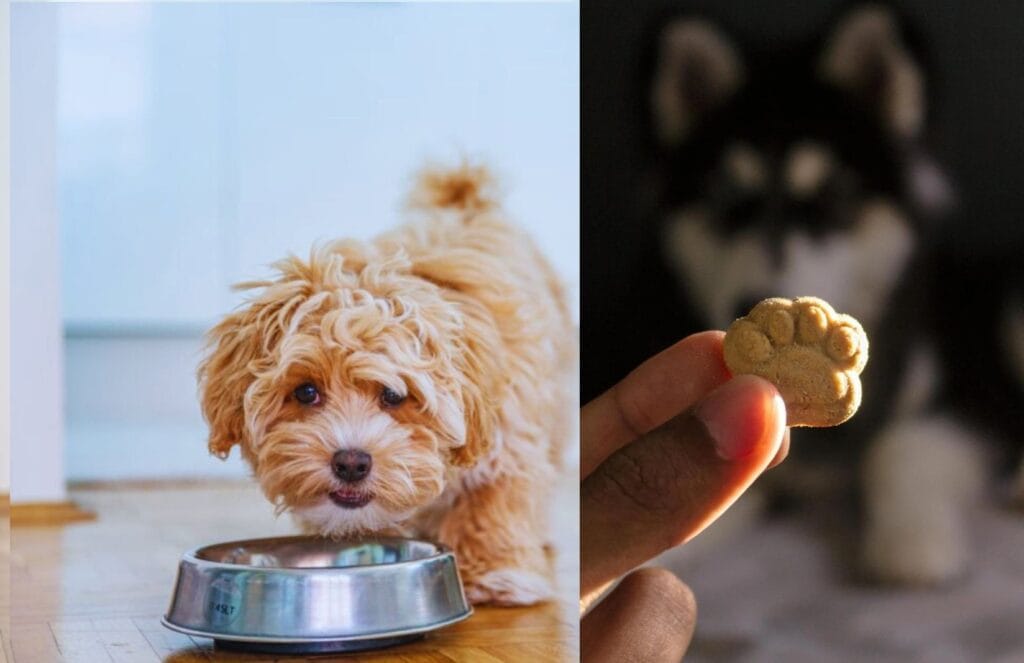Have you ever wondered why poodles are the worst dog breed. Let’s explore potential downsides of owning a poodle, while acknowledging their positive qualities as well. In this balanced exploration, we’ll help potential owners to make an informed decision.🔍
Poodles: The Good, The Bad, and The Fluffy – A Comprehensive Guide 🐩✨
1. Intelligence: A Blessing and a Challenge 🧠
Poodles are renowned for their exceptional intelligence, which can be both a joy and a challenge for owners.
The Bright Side ☀️
- Highly trainable and quick to learn new commands
- Excel in obedience, agility, and other dog sports
- Can learn complex tricks and tasks
- Great problem-solvers
The Challenges 🌧️
- Require constant mental stimulation to prevent boredom
- May outsmart their owners or develop mischievous behaviors
- Can be stubborn if not properly challenged
Balancing Act ⚖️
To harness a poodle’s intelligence positively:
- Engage in regular training sessions
- Provide puzzle toys and mental challenges
- Consider advanced obedience or trick training
2. Grooming: High Maintenance but High Reward ✂️
Poodle grooming is often cited as a significant challenge, but it also comes with unique benefits.
The Bright Side ☀️
- Hypoallergenic coat, great for allergy sufferers
- Minimal shedding, keeping homes cleaner
- Versatile styling options for creative owners
- Bonding opportunity during grooming sessions
The Challenges 🌧️
- Requires frequent professional grooming (every 4-8 weeks)
- Daily brushing needed to prevent matting
- Can be expensive to maintain
Grooming Comparison Table
| Aspect | Poodle | Labrador | German Shepherd |
|---|---|---|---|
| Shedding | Minimal | Heavy | Heavy |
| Grooming Frequency | High | Low | Moderate |
| Allergy-Friendly | Yes | No | No |
| Styling Options | Numerous | Limited | Limited |
Balancing Act ⚖️
To manage grooming effectively:
- Learn basic grooming skills to reduce professional visits
- Invest in quality grooming tools
- Establish a regular grooming routine
3. Exercise Needs: Active Lifestyle Companion 🏃♂️
Poodles have significant exercise requirements, which can be seen as a pro or con depending on the owner’s lifestyle.
The Bright Side ☀️
- Excellent jogging or hiking partners
- Enjoy a variety of activities (swimming, fetch, agility)
- Help keep their owners active and healthy
- Adaptable to different exercise routines
The Challenges 🌧️
- Require daily exercise (30-60 minutes minimum)
- Can become destructive if under-exercised
- May be too energetic for sedentary owners
Exercise Needs by Poodle Size
| Poodle Size | Daily Exercise Requirement |
|---|---|
| Toy | 30-45 minutes |
| Miniature | 45-60 minutes |
| Standard | 60-90 minutes |
Balancing Act ⚖️
To meet exercise needs positively:
- Incorporate exercise into your daily routine
- Explore various activities to keep things interesting
- Consider doggy daycare or a dog walker if you’re short on time
4. Temperament: Sensitive and Affectionate 💖
Poodles are known for their sensitive nature and strong bonds with their owners.
The Bright Side ☀️
- Highly affectionate and loyal
- Great with families and children
- Intuitive to their owner’s emotions
- Often described as “velcro dogs” due to their attachment
The Challenges 🌧️
- Can develop separation anxiety if not properly trained
- May be overly sensitive to criticism or harsh tones
- Require consistent positive reinforcement
Temperament Comparison
| Trait | Poodle | Golden Retriever | Chihuahua |
|---|---|---|---|
| Affection Level | High | High | Moderate |
| Sensitivity | High | Moderate | High |
| Good with Children | Yes | Yes | Varies |
| Attachment to Owner | Very Strong | Strong | Very Strong |
Balancing Act ⚖️
To nurture a poodle’s temperament positively:
- Use positive reinforcement training methods
- Gradually accustom them to being alone
- Provide plenty of affection and quality time
5. Health: Generally Healthy with Some Concerns 🏥
Poodles are generally healthy dogs, but like all purebreds, they’re prone to certain health issues.
The Bright Side ☀️
- Generally long-lived (12-15 years on average)
- Many health issues can be screened for or prevented
- Often remain active and vibrant well into their senior years
The Challenges 🌧️
- Prone to certain genetic health issues (e.g., hip dysplasia, eye problems)
- Can be expensive to treat if health issues arise
- Require regular veterinary check-ups and preventive care
Common Health Issues and Prevention
| Health Issue | Prevention/Management |
|---|---|
| Hip Dysplasia | Genetic screening, maintain healthy weight |
| Progressive Retinal Atrophy | Genetic testing, regular eye exams |
| Addison’s Disease | Regular check-ups, watch for symptoms |
| Bloat (in Standard Poodles) | Feed smaller meals, avoid exercise after eating |
Balancing Act ⚖️
To maintain good health:
- Choose a reputable breeder who does health testing
- Keep up with regular vet check-ups and vaccinations
- Maintain a healthy diet and exercise routine
6. Versatility: The Jack of All Trades 🎭
Poodles are incredibly versatile dogs, adapting well to various lifestyles and roles.
The Bright Side ☀️
- Excellent in various dog sports (agility, obedience, dock diving)
- Can be trained as service or therapy dogs
- Adapt well to different living situations (apartments to large homes)
- Come in three sizes to suit different preferences
The Challenges 🌧️
- May become bored or destructive without enough stimulation
- Require consistent training and socialization
- Not ideal for owners who want a low-maintenance pet
Poodle Sizes and Their Benefits
| Size | Weight | Benefits |
|---|---|---|
| Toy | 4-6 lbs | Perfect for small spaces, easy to travel with |
| Miniature | 10-15 lbs | Good balance of size and energy, adaptable |
| Standard | 40-70 lbs | More robust, excellent for active lifestyles |
Balancing Act ⚖️
To make the most of a poodle’s versatility:
- Expose them to various activities and environments
- Consider their size when choosing activities
- Engage in training for specific roles or sports
7. Cost of Ownership: An Investment in Quality 💰
Owning a poodle can be expensive, but many owners find the cost worthwhile.
The Bright Side ☀️
- Long lifespan means more years with your companion
- Potential savings on cleaning due to minimal shedding
- Valuable traits like intelligence and versatility
The Challenges 🌧️
- High initial cost from reputable breeders
- Ongoing expenses for grooming and potential health issues
- Need for quality food, toys, and supplies
Estimated Annual Costs
| Expense Category | Estimated Annual Cost |
|---|---|
| Food | $300 – $700 |
| Grooming | $600 – $1,200 |
| Veterinary Care | $200 – $1,000 |
| Toys and Supplies | $100 – $300 |
| Training/Activities | $200 – $500 |
Balancing Act ⚖️
To manage costs effectively:
- Budget for ongoing expenses
- Consider pet insurance for unexpected health issues
- Learn basic grooming to reduce professional visits
8. Family Compatibility: The Perfect Fit? 👨👩👧👦
Poodles are often praised for their family-friendly nature, but it’s important to consider all aspects.
The Bright Side ☀️
- Generally good with children and other pets
- Adaptable to family routines
- Affectionate and loyal to all family members
- Playful and energetic, great for active families
The Challenges 🌧️
- May be too energetic for very young children
- Require consistent training from all family members
- Need significant time and attention
Family Compatibility Factors
| Factor | Poodle Compatibility |
|---|---|
| Good with Children | High |
| Good with Other Pets | High (with proper socialization) |
| Adapts to Family Routines | Very Good |
| Energy Level Match | Best for Active Families |
Balancing Act ⚖️
To ensure a good family fit:
- Involve all family members in training and care
- Teach children how to properly interact with the dog
- Ensure the poodle gets enough attention from everyone
9. Longevity: A Lifelong Companion 🦴
Poodles are known for their relatively long lifespans, which can be both a blessing and a responsibility.
The Bright Side ☀️
- More years to enjoy with your furry friend
- Often remain playful and active in their senior years
- Strong bond formed over many years
The Challenges 🌧️
- Long-term commitment required
- Potential for age-related health issues in later years
- Need to plan for care in your own long-term life plans
Average Lifespan Comparison
| Breed | Average Lifespan |
|---|---|
| Poodle | 12-15 years |
| Labrador Retriever | 10-12 years |
| Great Dane | 7-10 years |
| Chihuahua | 14-16 years |
Balancing Act ⚖️
To make the most of your poodle’s longevity:
- Provide excellent care throughout their life
- Plan for potential senior care needs
- Enjoy the deep bond that comes with a long-term companion
FAQs: Your Poodle Questions Answered 🤔
Q: Are poodles really hypoallergenic?
A: While no dog is 100% hypoallergenic, poodles are among the best breeds for allergy sufferers due to their low-shedding coat.
Q: Do poodles bark a lot?
A: Poodles can be vocal, but with proper training, excessive barking can be managed.
Q: Are poodles good for first-time dog owners?
A: With their intelligence and trainability, poodles can be good for committed first-time owners willing to invest time in training and care.
Q: How do poodles do in apartments?
A: Smaller poodle varieties adapt well to apartment living, provided they receive adequate exercise and mental stimulation.
Q: Are male or female poodles better?
A: Both make excellent pets. Males tend to be slightly larger and more outgoing, while females may be more independent.
Conclusion: Is a Poodle Right for You? 🐾
Poodles are exceptional dogs that offer intelligence, affection, and versatility. They excel in various roles, from family pets to service dogs, and their hypoallergenic coats make them accessible to many who couldn’t otherwise own a dog.
However, they also require significant time, effort, and financial investment. Their grooming needs, exercise requirements, and need for mental stimulation can be challenging for some owners.
The ideal poodle owner is:
- Active and enjoys regular exercise
- Willing to invest time in training and grooming
- Able to provide mental stimulation and attention
- Comfortable with a long-term commitment
For those who can meet their needs, poodles offer an unparalleled companionship filled with love, laughter, and unwavering loyalty. They’re not just pets; they’re intelligent, sensitive partners ready to accompany you through life’s adventures.
Remember, every dog is an individual. While these traits are typical of poodles, each dog will have its own unique personality. Spend time with poodles, talk to owners and breeders, and carefully consider your lifestyle before making the decision to bring a poodle into your life.
If you’re ready for a smart, active, and affectionate companion who will keep you on your toes (and maybe even outsmart you occasionally), a poodle might just be your perfect match! 🐩💖



